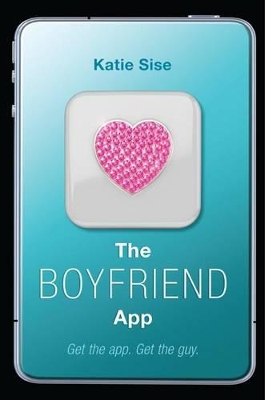Reviewed by Briana @ Pages Unbound on
The product did not live up to it. I actually have a few complaints about The Boyfriend App. First, the writing is choppy and sporadic. Sise will often be describing a scene, only to take a break to make a random observation, usually about a character’s appearance. Nothing is more anticlimactic than reading about an interesting conversation or exploit, only for it be interrupted for a completely irrelevant notice that some character is wearing glasses or has a tattoo.
Second, the technological aspects are not handled well. Audrey is apparently a computer science genius and hacker extraordinaire, but I got that sense mostly from the narrative voice hammering it into my brain, not from the story itself. Sure, Audrey does some pretty techy stuff (like designing an app!), but the actual actions come so easily and quickly to her that they seem more like magic than real accomplishments. On the other end of the spectrum, Sise throws in some technological explanations for the enlightenment of her readers, but they are incredibly basic. I do not code at all. I cannot make a computer program or an app, and I could not hack into a completely unprotected program—yet almost nothing that was explained to me in this book was new to me. Sise’s intended audience, teenagers, has grown up on technology unlike any other generation. I imagine many of them will find Sise’s explanations rather basic, as well, and I wish she would have delved a little deeper.
Third, I was disoriented by The Boyfriend App because, going into it, I assumed it was supposed to be a realistic contemporary novel. Reading it, I found it to be closer to some type of contemporary daydream. This is fine, except I have no idea whether Sise intended it to smack a bit of fantasy, or if she is just very disconnected from how high schools work. For instance, once the Boyfriend App starts gaining national popularity, Audrey becomes an instant celebrity. When she goes to school the next morning, dozens of students are waiting outside for her arrival, chanting her name, maybe even waving signs (I don’t remember). The point is…the other students are acting as if Audrey is Jennifer Lawrence or something, which would never happen in a real high school. Halfway through the book, I sincerely suspected that Audrey was going to wake up at the end and realize she had dreamed the entire thing.
However, all these faults pale in comparison with the fact that book shines a positive light on rape. I can only assume it does so unintentionally, but this book got through a lot of people—the author, test readers, an agent, editors and a publisher—and no one found it problematic. That in itself is problematic to me.
Audrey creates two versions of the Boyfriend App in the book. The first bears similarities to a mobile dating site. Users fill out a personality questionnaire, and then the app finds potential romantic matches. When a girl is within 100 yards of a match, she gets a notification from her phone telling her the name and location of her match. She can then decide to approach him, or pass. (The app is also supposed to work for girls seeking girls and guys seeking guys, and who gets the notification in these cases is never explained.) This is slightly stalkerish, in my opinion, but both parties signed up for the app knowing how it works, so power to them.
The real problem is the Boyfriend App 2.0. Audrey hacks into the app contest’s host company’s system and discovers they are using inaudible sound waves to persuade their products’ users to buy even more of their products. Audrey modifies this technology and creates an app with which girls can point their phones at an intended target and force them to lust after them—then act on their lust. That’s right; girls can use their phones to force guys to hug them, kiss them, grope them, and presumably go farther (though the book is kept PG-13 and no intercourse is mentioned).
No one in the book has a problem with this. Not Audrey, or her friends, or the male victims, or any news sources or government agencies who release articles about Audrey and her app. In fact, the moral issue of the story is framed to be Audrey’s hacking and theft of the sound wave technology. People are more concerned that Audrey stole the technology that enables rape, than they are that she is enabling rape. (Incidentally, no one seems overly concerned that the same technology is being used by a large corporation to force people to buy their products either.)
I do not dismiss many books on moral grounds. I enjoy a number of stories that include or even encourage actions I object to, and I like a lot of books that go so far as to directly attack my personal beliefs. However, I found the attitude towards rape in The Boyfriend App absolutely appalling, and I am frankly surprised that so few other readers/reviewers have objected to it. I am disgusted and offended, and I am sure public reaction to this story would be entirely different if it included a “Girlfriend App” that allowed guys to force girls to hook up with them. I would not in good conscience recommend this book to anyone.
Reading updates
- Started reading
- 30 December, 2013: Finished reading
- 30 December, 2013: Reviewed
